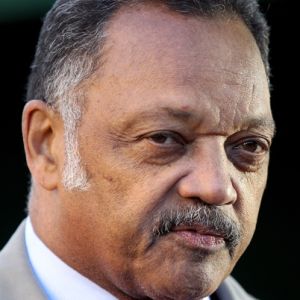 I won’t be blogging through the holidays, but I wanted to leave you with an editorial that struck me from Rev. Jesse Jackson this week in the Chicago Sun-Times. It describes the parallels between Jesus’s birth and the current climate of oppression for religious minorities, as well as how Christmas has largely lost its sacred meaning in today’s world:
I won’t be blogging through the holidays, but I wanted to leave you with an editorial that struck me from Rev. Jesse Jackson this week in the Chicago Sun-Times. It describes the parallels between Jesus’s birth and the current climate of oppression for religious minorities, as well as how Christmas has largely lost its sacred meaning in today’s world:
Now, of course, Christmas has become a holiday, more secular than sacred. Too many of us stretch our budgets not to lift those in need but to buy baubles for families and friends. Christmas often means more debt until Easter. It has become a marketing scheme, a time of malls and sales, of come-ons and discounts. But we should not allow Jesus the Christ, the redeemer, the emancipator to be displaced by Santa the Claus, and more debt and unaffordable things.
Let us use this holy day to reassess where we are. We are spending trillions in wars without end. Inequality has reached extremes not witnessed since the eve of the Great Depression. We continue to lock up more people than any nation in the world. On an average day, 27 people die from gun violence in the United States; in Canada and other western nations, the average is fewer than five per day.
Yet, as Jackson writes, the message of the holiday is that “people of conscience can make a difference, even against the most powerful oppressor” and that our leaders should exercise “the power of summoning our better angels, rather than rousing our fears or our divisions.” It’s worth reading the whole thing, as the holiday season approaches.
I’ll be back blogging in the new year.
Donald Trump has become the Republican nominee in part through divisive and hateful rhetoric. So it’s somewhat ironic that he and Jesse Jackson, the iconic civil rights leaders, agree on at least one important topic: the need for infrastructure investment at home, instead of nation building abroad.
As Rev. Jackson wrote in a recent column on the Flint water crisis:
This country continues to squander billions on failed “nation building” efforts on the other side of the world. We wasted over $2 trillion on the debacle in Iraq that has helped destabilize the greater Middle East. As Flint has revealed, we will face spreading calamities from obsolete water systems, dangerous bridges, crumbling roads, dated and insufficient mass transit. It is time we stop pretending we can police the world and start rebuilding our country here at home.
Compare that with Trump’s argument in the Washington Post about what’s ailing America’s inner cities:
And I just think we have to rebuild our country. If you look at the infrastructure — I just landed at an airport where, not in good shape, not in good shape. If you go to Qatar and if you go to (inaudible) you see airports the likes of which you have never seen before. Dubai, different places in China. You see infrastructure, you see airports, other things, the likes of which you have never seen here.
…
We have a country that is in bad shape, it’s in bad condition. You look at our inner cities, our inner cities are a horrible mess. I watched Baltimore, I have many, many friends in Baltimore, we watched what happened. St. Louis, Ferguson, Oakland, it could have been much worse over the summer. And it will probably be worse this summer. But you look at some of our inner cities. And yet you know I watched as we built schools in Iraq and they’d be blown up. And we’d build another one and it would get blown up. And we would rebuild it three times. And yet we can’t build a school in Brooklyn. We have no money for education, because we can’t build in our own country. And at what point do you say hey, we have to take care of ourselves. So, you know, I know the outer world exists and I’ll be very cognizant of that but at the same time, our country is disintegrating, large sections of it, especially in the inner cities.
And in an earlier interview with the Guardian, Trump expressed support for investing in mass transit.
Now I’m sure Jackson and Trump won’t agree on much else. But on such an important issue, it’s pretty amazing to see this convergence from such polar-opposite leaders.


